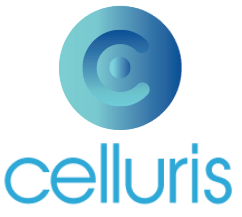Science and medicine have advanced in various areas, especially in oncological treatment. One of the main innovations in this field is CAR-T therapies or Chimeric Antigen Receptor (CAR) therapy. In this therapy model, cells are genetically modified in a laboratory to express the chimeric antigen receptor (CAR), a protein that binds to an antigen found on the surface of cancer cells. After this process, the modified cells are cultivated in the laboratory, selected, multiplied, and finally reinfused into the individual undergoing treatment.
Due to being a highly personalized treatment, this type of therapy comes with a high operational cost, including the production of the therapy and the involved logistics. In some countries, the cost of treatment reaches thousands of dollars. In Brazil, the estimated cost is R$ 2 million.
Currently, CAR-T cell treatment is considered the most promising for untreatable hematological diseases. Despite the excellent results achieved, cost is the primary barrier to CAR-T cell treatment.
The cost of CAR-T therapy is significant, encompassing the personalized development of treatment, the production of modified cells in the laboratory, and the administration of the treatment. This can create significant challenges in terms of accessibility and availability for patients, as well as issues related to insurance coverage and reimbursement.
Why are therapy costs so high?
CAR-T therapy is a relatively recent discovery and is not yet widely available due to the need for laboratories equipped with imported and sophisticated technology, high-cost inputs for genetic modification and cell multiplication, and a highly trained team. The entire process needs to be produced under good manufacturing practices, where all inputs must be certified accordingly. Additionally, there are associated hospital expenses since the treatment must be administered in a hospital setting, requiring patient observation for several days.
Currently, the production process of CAR-T cells takes 10 to 21 days. Optimizing this process to five days, for example, would not only benefit the patient by providing faster treatment but also reduce costs by using fewer inputs.
Associated Costs
In addition to the costs of CAR-T cell therapy itself, there are other associated costs. Among the costs associated with CAR-T cell treatment are: resources used in hospital care, medications consumed during hospitalization, outpatient care, medical and non-medical consultations, as well as diagnostic and therapeutic procedures.
Here are some of the costs associated with CAR-T therapy:
- Monitoring and follow-up: After the administration of CAR-T therapy, patients often require intensive monitoring and follow-up to manage side effects and assess the effectiveness of treatment. This may involve regular examinations, hospitalizations, and other costs associated with post-treatment care management.
- Additional doctors: Patients undergoing CAR-T therapy are hospitalized for a week after infusion. During this period, the patient may face complications and side effects requiring additional medical interventions such as treatment for infections, blood transfusions, and intensive care from the medical team.
- Patient support: CAR-T therapy can have significant side effects, including symptoms related to an intensified immune response. This may require supportive medications that act on inflammation or allergic reactions.
Pioneering in CAR-T Technology
Specializing in cellular therapy, Celluris was the first company to develop CAR-T technology in Brazil. Even today, it is the most dedicated in this field, working to offer personalized therapies to patients. To learn more about this therapy, please visit our website.


